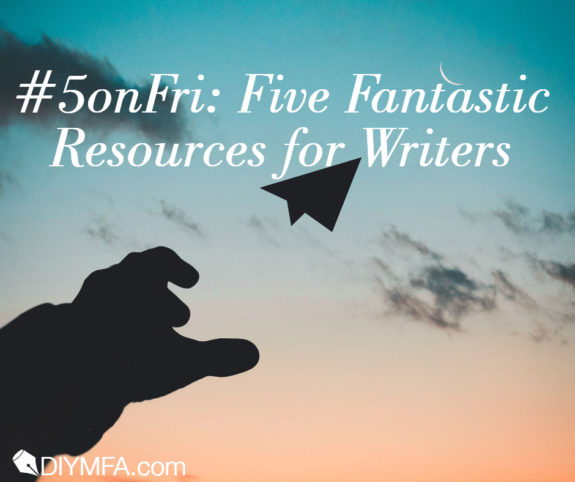Are you insecure about your art or grammar? Do you need help with deep point of view or writing children’s books? Are you looking for a powerful tool to help your brand? I have five books that can help you through your insecurity and teach you what you need to know to grow as a writer.
1) Big Magic: Creative Living Beyond Fear by Elizabeth Gilbert
The first time I read this book, I was going through a bad bout of depression. It opened my eyes to the magic of being creative, and gave me several pep talks that I needed. I recently re-read this book for the Insecure Writer’s Support Group Book Club on Goodreads, which I run. And for the second time, I was inspired. Not everything Elizabeth Gilbert said I agreed with, but the overall impact of her book was amazing, and I noticed it was the same for many of our book club members. While there are things that Elizabeth Gilbert says (or her tone at times) that didn’t work for them, they still got a lot out of her book and the things in it made them think.
“Stop treating your creativity like it’s a tired, old, unhappy marriage (a grind, a drag) and start regarding it with the fresh eyes of a passionate lover. Even if you only have fifteen minutes a day in a stairwell alone with your creativity, take it. Go hide in that stairwell and make out with your art.” – from Big Magic by Elizabeth Gilbert
If you need a boost, a reminder, a pep talk, a kick in the pants, if you need your eyes opened or reopened about your art, this book can do it.
2) Method Acting for Writers: Learn Deep Point of View Using Emotional Layers by Lisa Hall-Wilson
This is another selection for the Insecure Writer’s Support Group Book Club. If you want to learn how to write deep POV, this book will give you all of the pointers and steps you need to strengthen your writing. Lisa Hall-Wilson walks writers through creating character voice, internal dialogue, emotional layers, and so much more.
3) Children’s Writer’s Word Book by Alijandra Mogilner & Tayopa Mogilner
Children’s Writer’s Word Book is a great tool for writers interested in writing for children. When it comes to writing for children, it is essential to write a story that is age-appropriate. This book is divided into seven sections from kindergarten to sixth grade and middle grade. Under each section is a word list that all children learn at each grade level.
Depending on the audience for your children’s book, you can use the words on the list for that grade level, as well as the words on any previous list for younger grade levels. There are explanations for what children learn in the classroom, publishing information such as what publishers expect in terms of length and content, and also short writing samples to give you an idea of how to write for each level.
At the end of the book, there’s a neat thesaurus that highlights common words and provides synonym alternatives for different grades. So, if you use a word that is too advanced, you can find a simpler word for younger readers. Or, you can swap out weaker vocabulary words for stronger ones, words that older children should know and learn in the middle grade, for instance.
If you want to write for children, this book will assist you greatly.
4) The Grammar Bible by Michael Strumpf
The Grammar Bible is simple and easy to understand, even for those writers who have a hard time grasping grammar rules. The examples that are included for each rule further assist with understanding.
If you struggle with commas, this book will especially help you. I used to hate commas and was never confident when using them. I’d wonder if I was using a comma correctly or if I needed one. Then I discovered this book, and now I am confident.
Each chapter is divided into sections to help you learn. Part one consists of parts of speech: nouns, verbs, adjectives, adverbs, pronouns, prepositions, conjunctions, and interjections. Part two is all about dissecting sentences. Part three is for spelling, vocabulary, and punctuation.
5) Your One Word: The Powerful Secret to Creating a Business and Life That Matter by Evan Carmichael
Your One Word was written for entrepreneurs and small business owners, but anyone can use the concept of One Word. Even writers. When I read this book and discovered my one word (sparks), I used it for my website, blog, social media sites, everywhere.
Your one word defines you (who you are), your business, what you strive for in all you do, and what you want to give others. Essentially, it’s branding, which is what all authors need to do. Evan Carmichael says, “Your one word is your core. It’s your guiding light. It makes all decisions easier…When you know your one word, you can make decisions that support your path…it will also help you to stay motivated.”
And isn’t that what we all need/want? Read this book to discover your one word and its power—for you, your writing, your life, your career.
What books have helped you through your insecurity as a writer?

Chrys Fey is the author of Write with Fey: 10 Sparks to Guide You from Idea to Publication. She is also the author of the Disaster Crimes series. Visit her blog, Write with Fey, for more tips on how to reverse writer’s burnout, and follow her on Twitter at @ChrysFey.







